Roguelike action platformer 20XX, released in 2014, hit the market at just the right time. Capcom was ignoring the Mega Man franchise, and the Kickstarter game Mighty No. 9 massively disappointed fans after promising to be a spiritual successor that would live up to the Blue Bomber’s extensive history.
Indie developer Batterystaple Games’ 20XX ended up taking the community by storm with its roguelike take on the classic jump-and-shoot formula, which provided constantly changing levels, awesome power-ups, and a difficulty curve that could satisfy any hardcore platforming fan. And now, Batterystaple is taking things even further with 30XX, a sequel that looks to expand upon the previous game’s formula in a big way.
30XX is improving the crisp controls and fluid movement of the previous game, making running through an endless number of randomly generated levels with new powers and items will feel even better. Local and online multiplayer are also returning, so you and a friend can take on the endless cycle and roguelike-style progression. As the game says: “Rise. Fight. Fall. Adapt.”
During PAX Online, 30XX developer, director, and Batterystaple Games founder Chris King showcased an alpha version of his newest title and talked with Gamepur about the inspiration behind the game, new features, appealing to non-roguelike players, and his appreciation for Early Access.
What was the initial announcement response like? I remember seeing a lot of people complimenting the art style choices and all of the new inclusions, but what was that initial burst of feedback like for the team?

Photo via Twitter
Chris King: It was fantastic and very validating. As you know, we announced [30XX] earlier this year before PAX East, back when we could have physical shows, and we were pretty blown away by the response.
We had been working on this style in secret for the better part of a year, and we knew there would be a little bit of risk since we have a bunch of fans that liked the game in its existing style. So we were thinking about how many fans we could potentially be alienating by completely changing the look, but we always had a pretty firm understanding that this kind of higher quality pixel art style was going to be a really good fit for the game, and it would be worth it if we could pull it off.
There is almost always going to be some section of the player base who will look at your art and say, “Well, that art’s not really for me.” But for every disappointed response, we have gotten something like 10 to 15 really excited ones that let us know we have moved in the right direction.
Outside of the traditional Mega Man and roguelike influences, what other games did the team take for inspiration as you decided what to change, add, and keep the same in 30XX?
You hit it right on the head since the chief inspiration is the movement and feel from the Mega Man X games, specifically like X4. But the rest of the inspiration came from our “it takes a village” kind of approach. I wouldn’t necessarily peg down one specific game in terms of overall inspiration, but the team takes individual pieces of inspiration from pretty much everywhere across the board. And that’s not necessarily just from video games either.
But speaking on interesting inspirations, we did recently announce a non-fully roguelike feature for the game called Mega Mode. As you know, 20XX’s sort of basic play mode involves a form of roguelike behavior, with all of the levels being randomly generated, and when you die there is permadeath, which sends you back to HQ and you will have to start over at Level One after buying some upgrades to try again.
In Mega Mode, you will be able to generate what is essentially a campaign of levels without permadeath. So you will start the game, it will build all of the levels for you upfront, and they won’t change until you beat them. So when you die, you will just go back to the stage select instead of ending your run. This will give players a good, alternative way to play the game if they don’t want the permadeath style roguelike experience and would rather master individual levels over multiple runs.
Is that a way for the Batterystaple team to open the game up to a wider audience? You mentioned appealing to non-roguelike players, but does this mean you are looking into accessibility options and other ways to bring people in who might not have given your games a try otherwise?
We think a lot about things like this, stuff like how to handle the difficulty and accessibility into the [roguelike] genre, because we know there are a lot of people who don’t play roguelikes. We figured Mega Mode was a wonderful way to provide an experience those players might be looking for without dampening the more traditional 20XX gameplay loop.
And since the last question was about inspiration, I think the first game we saw that was traditionally a “difficult” game that did assist modes very well was Celeste. The game is super hard, right? The hardest things you can do in Celeste are insanely difficult, but they have a really robust assist mode that works across the board. Anybody from before Celeste’s time might say if there is something you can switch on and slow down the game speed people will use it and cheapen themselves out of the challenge, which Celeste kind of proved isn’t true. You can put options in your game that make it more playable for other people without cheapening what you are offering to your most dedicated fans.
You talked about wanting to bring these different experiences to life so players can play the game how they want. What areas of the game are focusing on modernizing for this release?
The biggest thing for us is probably the combination of overall gameplay progressions systems and our online multiplayer. These are the two spiciest things we are working on leading into Early Access.
One of the reasons I am really comfortable with focusing on those areas is because we are big Early Access fans at Batterystaple. We know that 20XX was mostly good because we had really dedicated Early Access players who gave us feedback on everything we did with the game for over 2 1/2 years. So we also know that as long as we are honest with what we are doing, are open with the fanbase, and the content we provide by the time we get to Early Access is fun and relatively polished, we are doing right by the fanbase.
As long as we are providing that for the fans, we know they will help us make the systems we are proposing even stronger.
Fan support and various programs like Kickstarter and Steam Early Access were big parts of the original 20XX’s development cycle. Now, six years removed from the Echoes of Eridu run in 2014, how do you think those types of services play a role in today’s gaming space, including the ability to publish a demo.
It is very interesting to see developers kind of take everything to heart with this whole Early Access idea. Personally, I think it is great and it has become a very integral part of my design process. You know, get the basics down, get the really critical things — though with 30XX we are doing a little bit more than just the basics before we go to Early Access, but we are going to have a good chunk of the game not finished content-wise. We will be missing some stages, a ton of system iterations to do, and a lot more polish and design work, but we love it.
It is great to see other teams taking that on as well and doing wonderful things with it. So many great games have sort of made themselves into perfectly polished gems over the course of Early Access. I think really well done Early Access almost turns the development process into a games as a service kind of thing, where games will be in Early Access for a long time and do a ton of content updates before eventually hitting 1.0, and they still update the game, but they do it a little less frequently. I think that model is working really, really well, especially for games that happen to be very replayable.
Since the release of 20XX, Capcom reached back into the Mega Man well and brought it forward with Mega Man 11, to some pretty solid reception. Did that have any impact on your approach to 30XX, outside of just general expansion and improvement?
Honestly, the release schedule around us has had pretty much zero impact on 30XX so far. We had a really spicy time early in 20XX’s development because three months after we started development on the first game, Mighty No. 9 launched its Kickstarter. That was obviously a very difficult day for us, but we managed to realize that we fundamentally offered players a very different product and proceeded along with development undeterred.
The only real impact the rest of the industry would really have on 30XX’s development specifically is if Capcom decides to announce a new Mega Man X game sometime soon. You know, we might adjust our release schedule a little bit to make sure we aren’t coming around the same time if that happens.
It’s a great time to be a Mega Man fan. When we first started making 20XX, we made it because there was a dearth in the market. I saw that Capcom wasn’t making any Mega Man stuff, and I really always wanted to play some endless Mega Man, and so we made a Mega Man X roguelike.
But with 30XX, it is much less about a market dearth, because there really is a lot of great stuff to play now. It is much more about how we have proven we can make a really compelling and fun game you can enjoy with a friend in 20XX, but we still see so much distance between where we are and where we think the game could be. We think we can go so much further with this formula.
30XX is set to release in 2021, and there is an alpha version of the game available on Steam as a demo if you want to try it out.

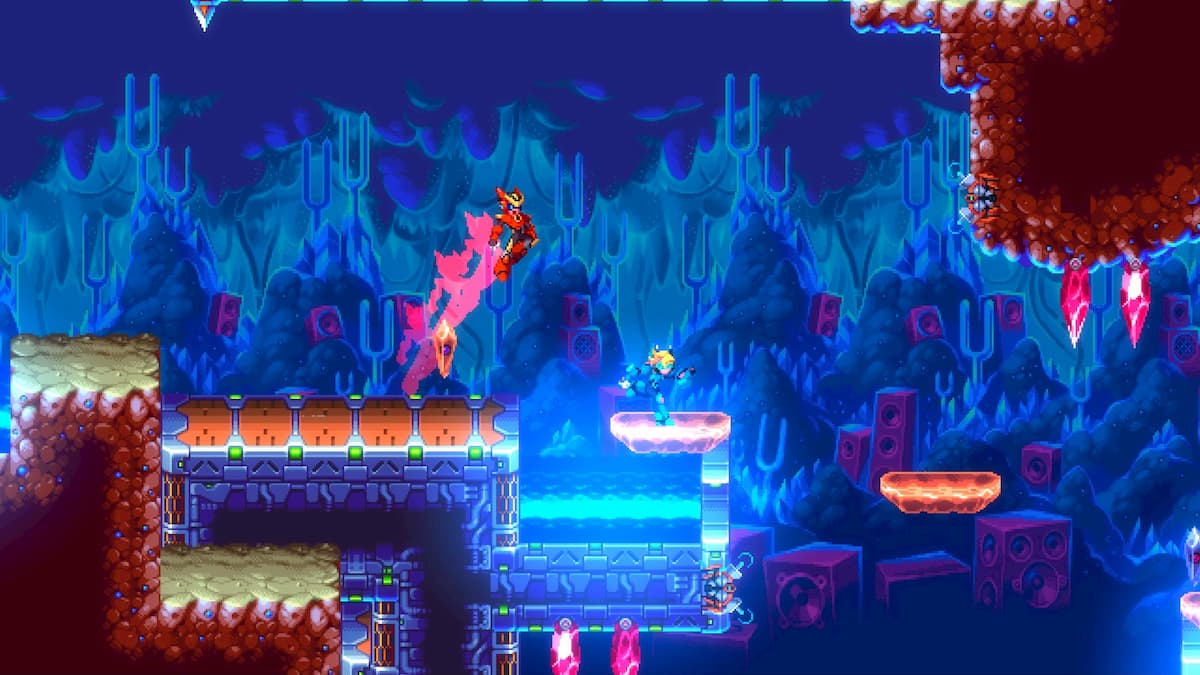
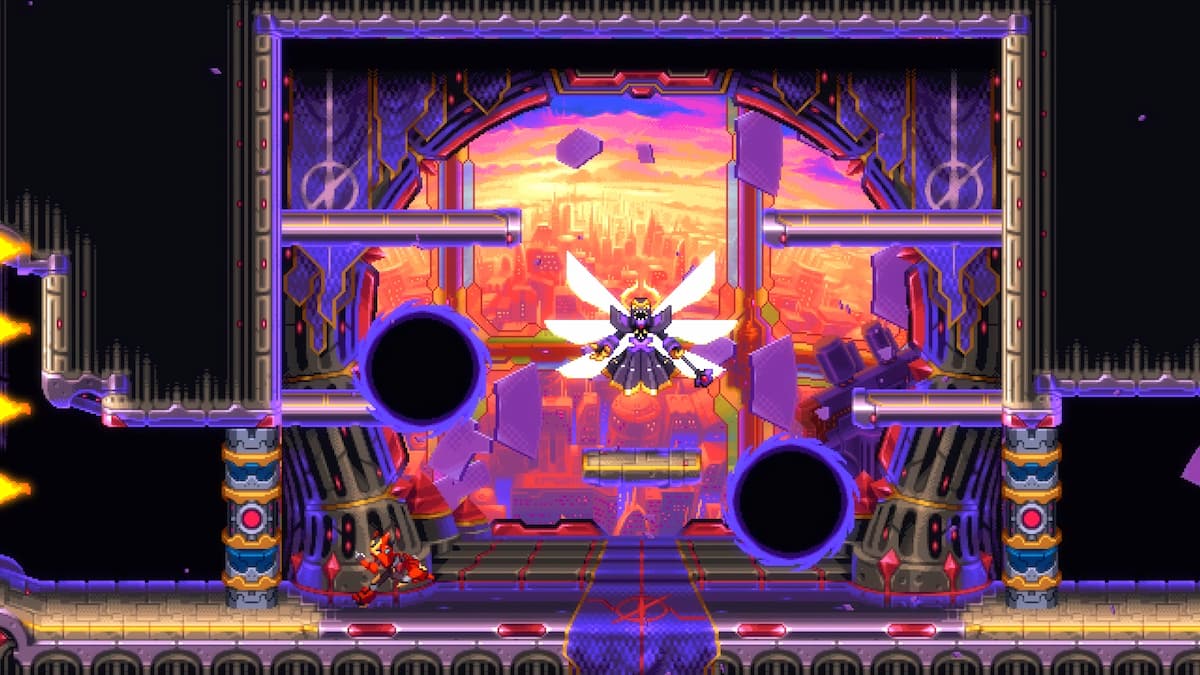
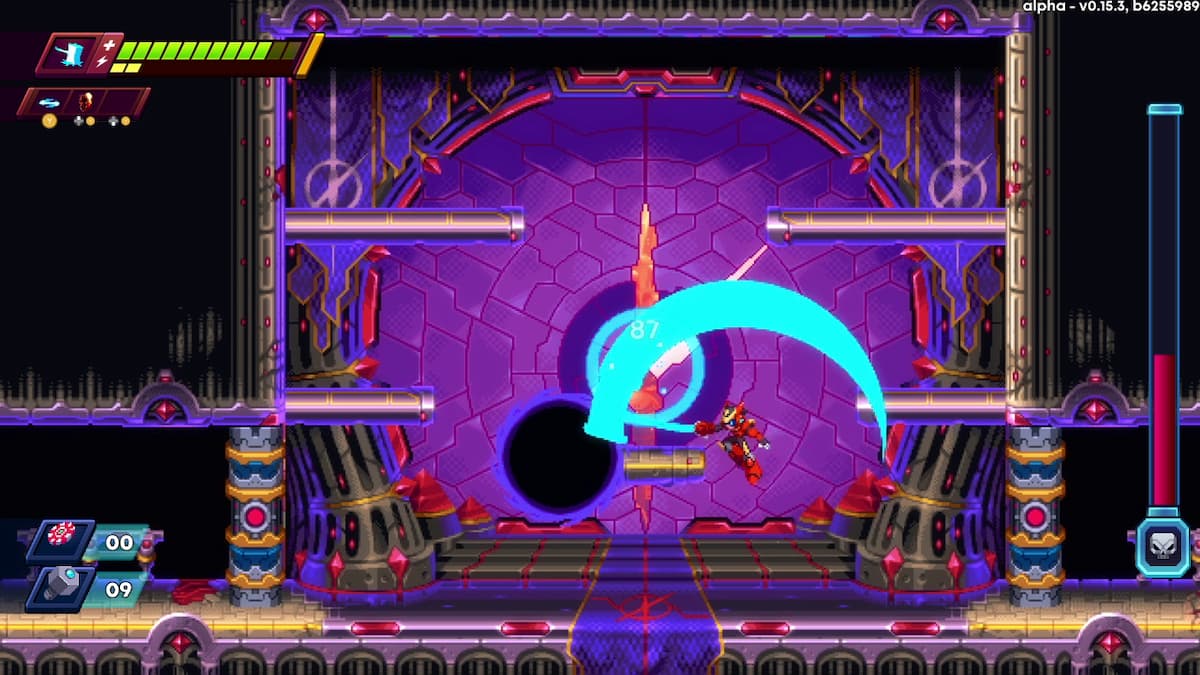
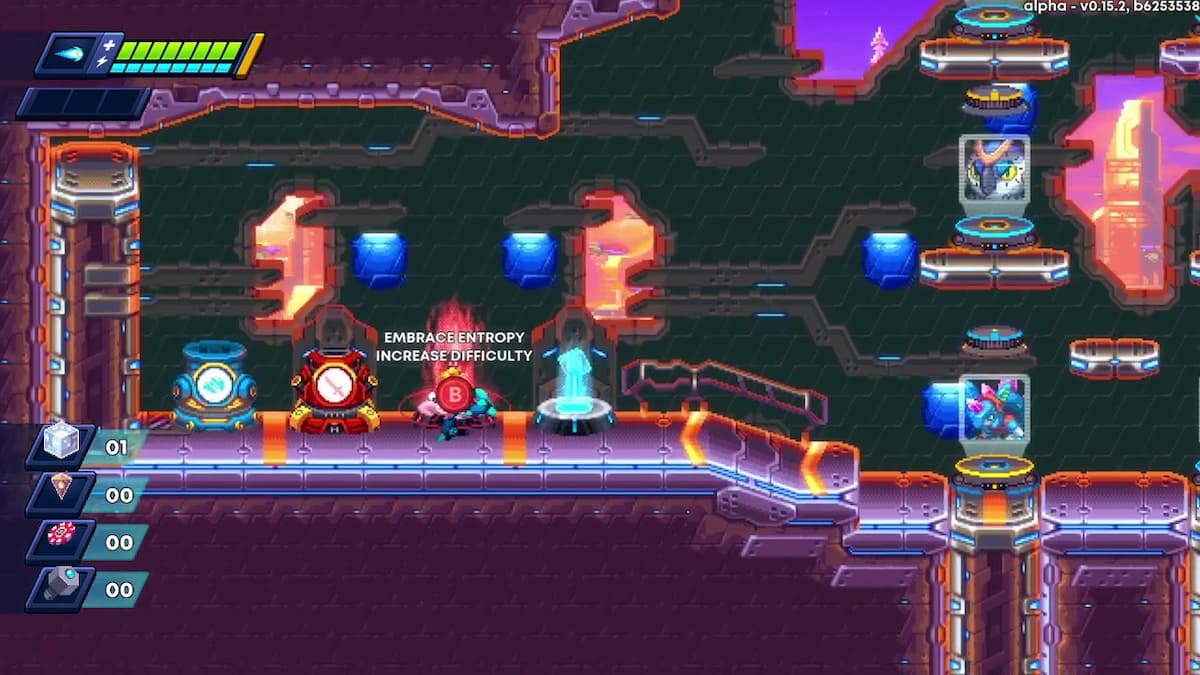
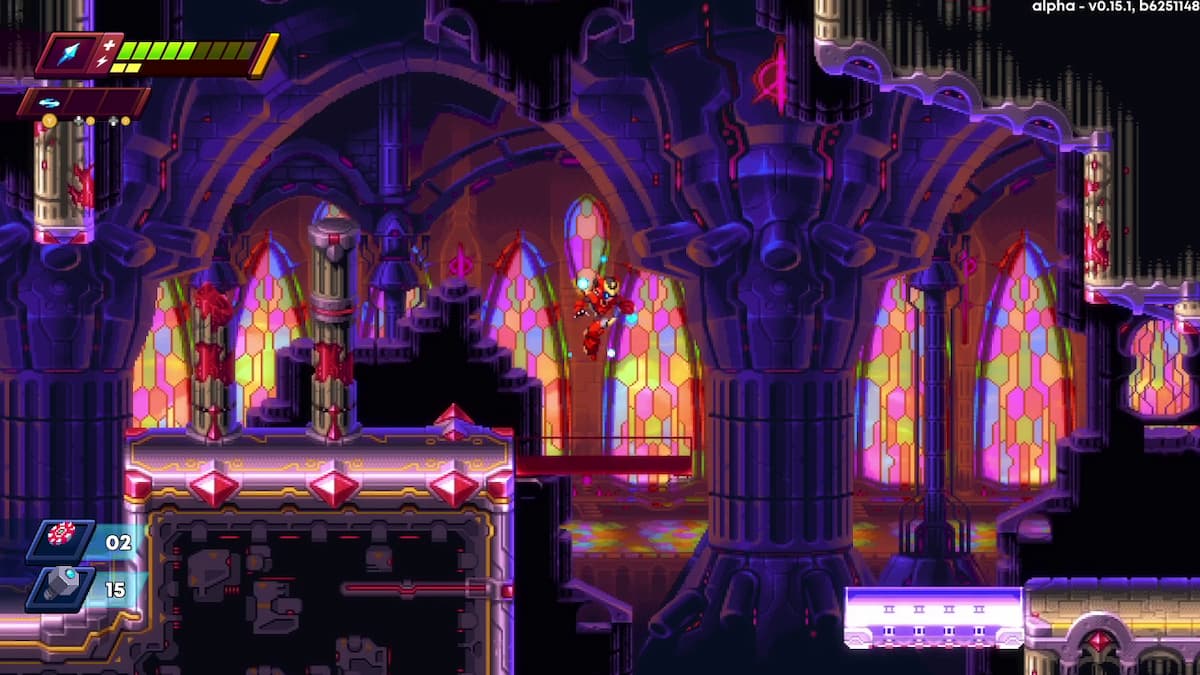
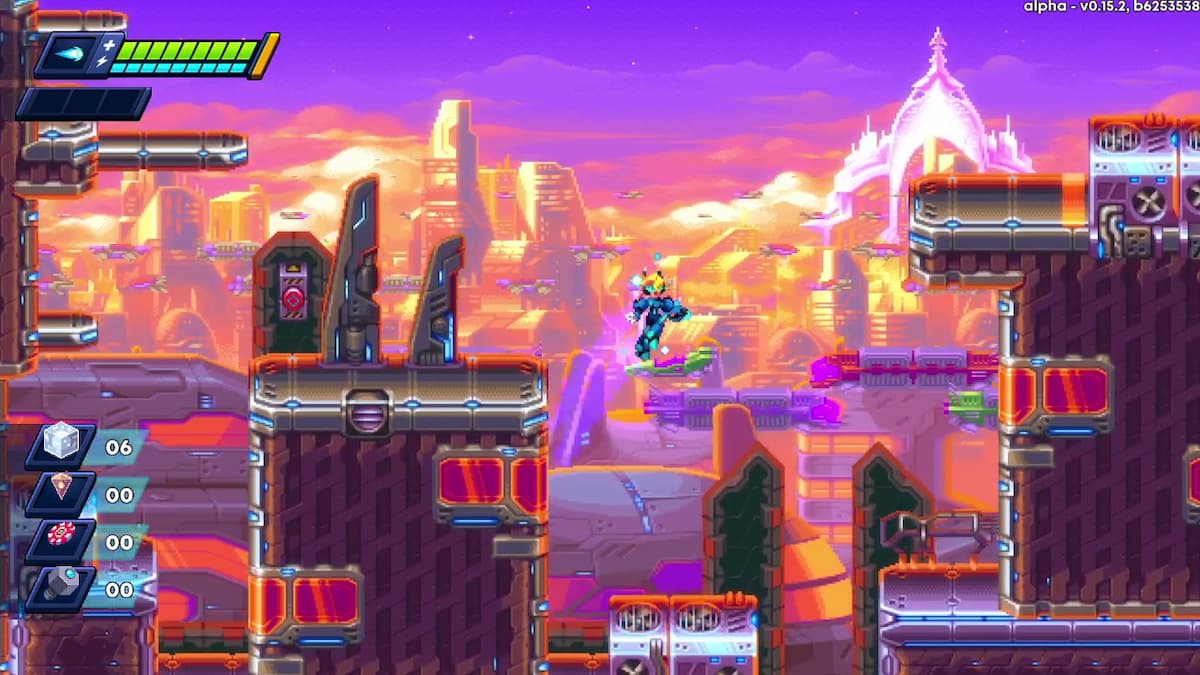
Published: Sep 25, 2020 07:05 pm